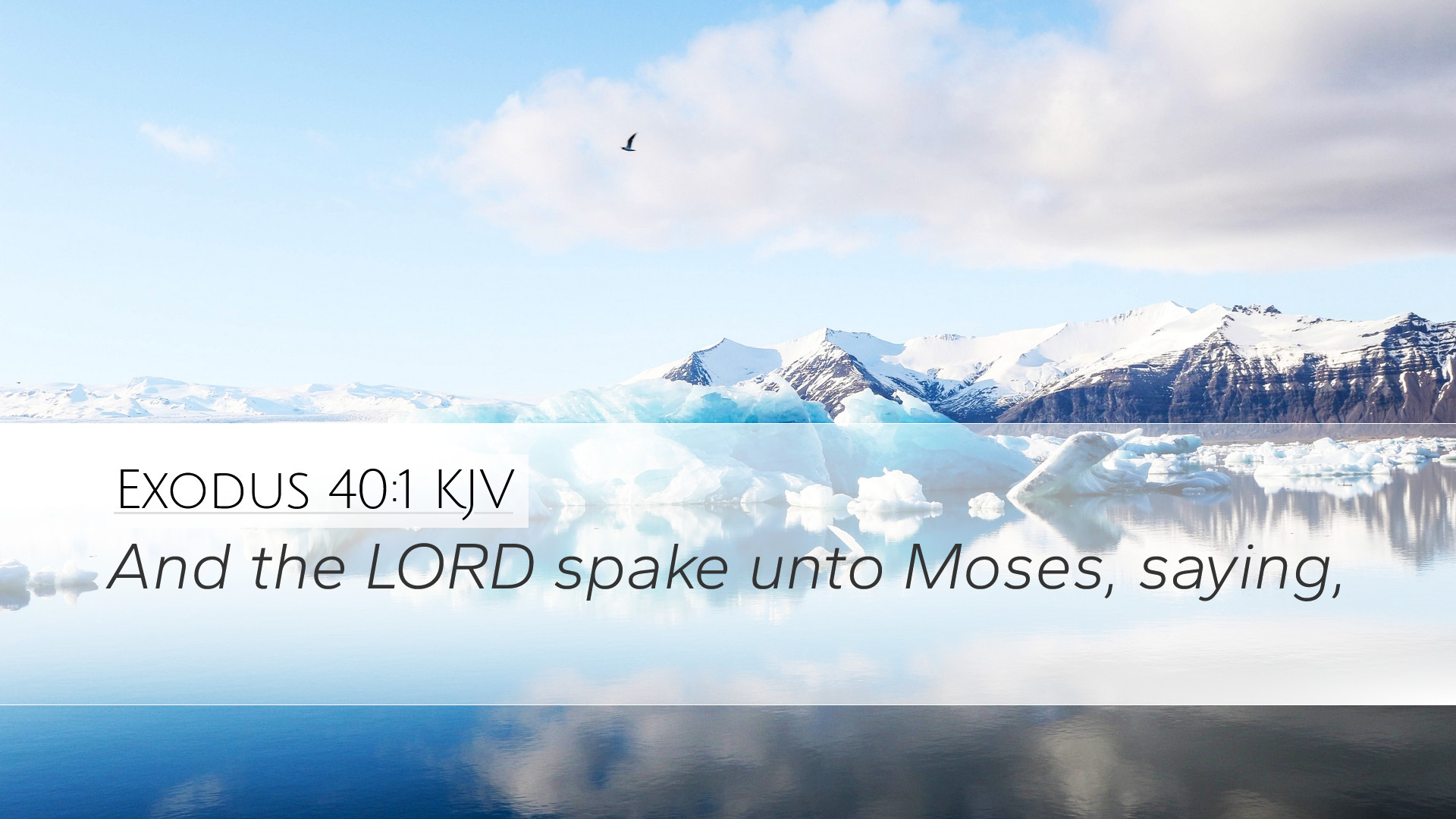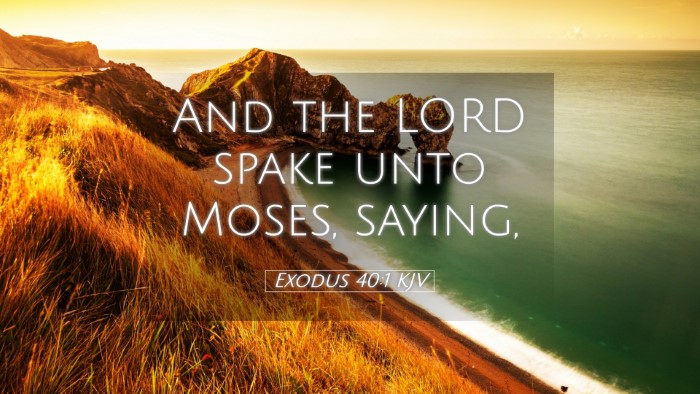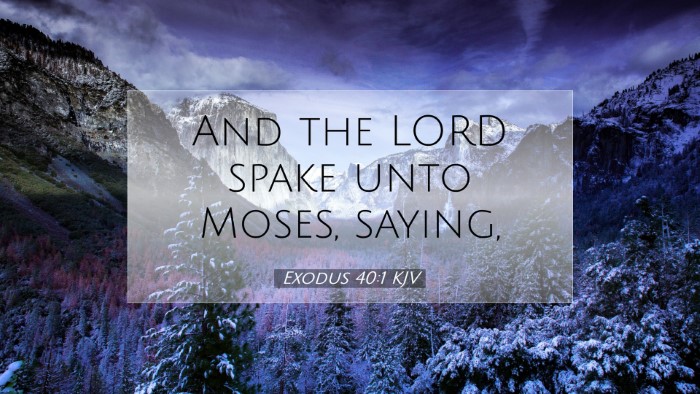Commentary on Exodus 40:1
Introduction
Exodus 40:1 serves as a pivotal verse in the Book of Exodus, marking the conclusion of the Israelites' journey through the wilderness and the completion of the Tabernacle, where God would dwell among His people. This passage encapsulates the themes of divine presence, sacrificial worship, and the fulfillment of God’s promises. Below, we provide a detailed commentary drawing insights from esteemed public domain commentators such as Matthew Henry, Albert Barnes, and Adam Clarke.
Text of Exodus 40:1
"And the LORD spake unto Moses, saying,"
Contextual Significance
As we analyze Exodus 40:1, it is fundamental to recognize its narrative context within the Exodus narrative. This verse signifies the culmination of God's instructions to Moses regarding the construction of the Tabernacle. The preceding chapters elucidate God’s detailed directives on the design and purpose of the Tabernacle, which represents God’s dwelling among the Israelites.
Divine Communication
Matthew Henry's Perspective
Matthew Henry emphasizes the importance of the communication between God and Moses. He notes that the phrase "the LORD spake unto Moses" illustrates God's continuous guidance and relationship with His chosen leader. Unlike the silence of idols, the living God actively engages with His people, providing commands that are to be obeyed with reverence and diligence.
Albert Barnes' Insight
Albert Barnes expands on the implications of divine instruction. He underscores that God's communication is not arbitrary; it serves a purpose for the covenant community. The instruction to erect the Tabernacle illustrates God's desire to dwell among His people, signifying His commitment to their spiritual and physical well-being. This theme of divine presence is crucial as it reflects God's covenant faithfulness.
Adam Clarke's Contribution
Adam Clarke suggests that this divine command reflects God's sovereign authority. The explicit nature of God’s speech to Moses implies a hierarchical structure within the Israelite community, where Moses acts as the mediator between God and the people. Clarke highlights how this verse sets a precedent for future instances where God would communicate His will through chosen leaders.
Theological Implications
Exodus 40:1 not only serves as a historical narrative but also as a theological statement about God's desire for a relational and covenantal presence with humanity.
- God's Desires to Dwell Among His People: The construction of the Tabernacle emphasizes that God yearns to be among His people, showcasing His relational nature.
- Moses as Mediator: This verse reiterates the role of Moses as a crucial intermediary, foreshadowing the ultimate mediation of Christ in the New Testament.
- Covenantal Family: The commands reflect God establishing a community that is intended to reflect His holiness and righteousness through obedience.
The Command to Erect the Tabernacle
Following this initial command, Moses is tasked with the assembly of the Tabernacle, underscoring the importance of obedience and order in worship.
Matthew Henry’s Commentary
Henry points out that the act of building the Tabernacle reflects the Israelites' dedication to God’s service. This presents a model of worship that includes structure, intentionality, and a collective commitment to obey God’s instructions wholeheartedly.
Albert Barnes on Worship and Structure
Barnes remarks on the significance of the Tabernacle's structure, which was divinely designed to facilitate and enhance worship. Each element of the Tabernacle played a purpose in declaring God's holiness, drawing the people into a deeper relationship with Him. The setting apart of space for worship indicates a necessary reverence before a holy God.
Adam Clarke's Interpretation of Assembly
Clarke reiterates that the instruction to build the Tabernacle was not merely functional but relational in its essence. This sacred space was created for communion, where sacrifices could be made, and where God’s forgiving nature could be experienced by the Israelites through offerings and rituals. Clarke noted that this created a community bond while reinforcing individual accountability in seeking atonement.
Conclusion
Exodus 40:1 is a verse rich with implications for pastoral teachings, theological discussions, and practical applications in the life of the church today. It marks the obedience of Moses in response to God's command, the importance of structured worship, and the profound truth that God desires to dwell among His people.
For contemporary believers, this serves as an invitation to recognize the ongoing relational dynamics between God and humanity and the length to which God goes to establish a covenant with His people. The reflection on this verse encourages modern-day worshippers to prepare their hearts and spaces for divine encounter and communion.
As they deepen their understanding of God's communication and instructions, pastors, theologians, and students can lead communities toward a faithful response characterized by obedience, reverence, and love for the divine presence that dwells among them.


